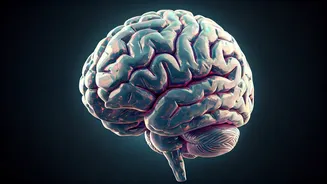Mindfulness & Meditation
The first exercise to be considered is mindfulness and meditation, which are key practices that could enhance cognitive function. These practices encourage
individuals to concentrate on the present moment, increasing awareness and reducing mental clutter. Regular meditation has been associated with improvements in attention span, memory, and emotional regulation. By practicing mindfulness, one can potentially mitigate the effects of age-related cognitive decline, creating a pathway to maintain a sharper and more focused mind. The gentle act of focusing on your breath can serve as a catalyst for mental clarity, helping reduce anxiety and boosting mental acuity, thus fostering a balanced mind.
Strategic Memory Training
Enhancing memory through targeted exercises forms the next step. Memory training involves learning and applying specific techniques to retain and recall information more effectively. These methods often include mnemonic devices, visualization, and spaced repetition. Mnemonic devices, for instance, are memory aids that use patterns, rhymes, or associations to improve memory recall. These techniques work by strengthening the neural pathways in the brain. Incorporating strategic memory training into a routine can sharpen cognitive functions, helping individuals remember and process information efficiently. This exercise underscores the brain's capacity to adapt and enhance its memorization capabilities.
Brain-Training Games
Next on the list are brain-training games, which offer a fun and engaging way to boost cognitive health. These games are designed to challenge various cognitive functions, including problem-solving, processing speed, and decision-making. Brain-training games often involve puzzles, quizzes, and strategic challenges. By regularly playing such games, individuals can improve their cognitive abilities and delay the onset of age-related cognitive decline. The interactive nature of these games can keep the mind engaged and active, promoting mental agility and cognitive flexibility. Regular engagement with these activities strengthens neural connections and improves cognitive performance.
Active Cognitive Engagement
Engaging in activities that demand active cognitive engagement offers another effective way to keep your mind sharp. This involves pursuing intellectually stimulating hobbies such as learning a new language, playing a musical instrument, or taking up a new skill. These activities require the brain to adapt, learn, and process new information, thereby enhancing cognitive flexibility and adaptability. The process of learning new things helps to maintain and build new neural pathways in the brain. The constant challenges involved in learning a new skill keep the mind engaged and alert. Pursuing such activities can create lasting impacts on the brain's ability to maintain cognitive sharpness.
Physical Exercise Impact
The final exercise is the impact of physical exercise. Physical activity is known to benefit not just the body but also the brain. Regular exercise increases blood flow to the brain, providing essential nutrients and oxygen that are crucial for cognitive function. Studies have shown that physical exercise can promote the growth of new brain cells and protect against cognitive decline. Engaging in a variety of physical activities, such as brisk walking, jogging, or swimming, can help to improve memory, attention, and overall cognitive performance. This demonstrates the connection between physical health and cognitive function, underscoring the importance of incorporating exercise into a daily routine.













